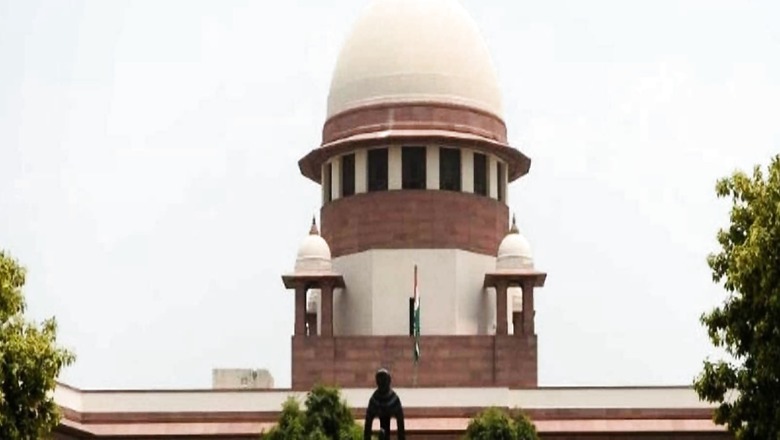
views
Last week, Narendra Modi-led NDA government declared 27 per cent reservation for OBCs and 10 per cent reservation for EWS students in the ‘All India Quota’ seats for admission to medical courses. There has been a clamour from different sections of society in the last few years demanding implementation of this reform. In some states, for instance Tamil Nadu, the delay in implementation of OBC reservation led to various political parties approaching the Madras High Court in the AIADMK case (2020). The road to the glory in which the government of the day is basking in was developed by the Supreme Court, a few decades back.
Reservation for Other Backward Classes (OBCs) and Economically Weaker Sections (EWS) in National Eligibility cum Entrance Test (NEET) has been touted as a social justice issue by the ruling party; whereas the persistent endeavour of the top court, over the last few decades, has been to balance merit with equity. It would be naive to view this issue from the lens of social justice vs merit.
The Beginning of ‘All India Quota’
In Dr Pradeep Jain case in 1984, the Supreme Court was asked to decide if domiciled-based reservations in medical colleges were approved under the scheme provided by the Indian Constitution. The court agreed to domicile-based reservations but also expressed how such reservations may subvert ‘merit’ at a national level by creating an embargo for medical aspirants from other states to compete for reserved seats. Hence, the court declared that 30 per cent seats in undergraduate courses and 50 per cent seats in postgraduate courses in any state must be open to students from other parts of the country. This direction of the Supreme Court became popular as ‘All India Quota’.
In a subsequent verdict, Dinesh II (1986), it was contended by the state of Tamil Nadu that in the absence of any reservation scheme applicable under the ‘All India Quota’ seats, the interests of students from marginal communities would inevitably suffer. Again, balancing the interests of marginal community with merit, the court in Dinesh II reduced the number of seats from 30 per cent to 15 per cent in the undergraduate courses and from 50 per cent to 25 per cent in the postgraduate courses. Subsequently, in postgraduate courses, the seats in the AIQ were increased again to 50 per cent from 25 per cent without touching the reserved seats under the undergraduate course.
Issue of Reservations
The Tamil Nadu High Court, from time to time, has been issuing directions declaring applicability of reservations in the All India Quota seats. In two such decisions, namely, R. Rajeshwaran (2001) and K. Jayakumar (2002), the Supreme Court rejected any reservation as far as the seats under the All India Quota were concerned. The judgment of the court relied on ‘insurmountable difficulties’ in adjustment of seats as each state has different categories of Scheduled Castes and Scheduled Tribes. It further held that Article 15(4) is an enabling provision that confers discretion to the state to provide for reservations; and it nowhere could be construed as an obligation.
ALSO READ | Opinion: OBC Quota in Medical Seats Welcome Step, Govt Must Now Provide OBC Count in Census
However, the longevity of both these judgments was cut short by a 2005 judgment of the Supreme Court in Abhay Nath wherein the court for the first time held that reservations for SCs and STs should be there in All India Quota seats. After the pronouncement of this judgment, the central government enacted Central Educational Institutions (Reservations in Admissions) Act, 2006 providing for 27 per cent reservation for OBCs in central educational institutions in addition to 15 per cent and 7.5 per cent reservation for SCs and STs.
The Controversy
The surrendered seats by the state governments to the central government constituting the All India Quota are not considered as seats belonging to central educational institutions for the purposes of Central Educational Institutions (Reservations in Admissions) Act, 2006. The states have vehemently demanded the state reservation policy on OBCs be applicable on these seats. However, the recent announcement of the NDA government, declaring 27 per cent reservation for OBCs in NEET, must put a rest to this long raging controversy.
It must be noted that reservations for STs and SCs in All India Quota has already been implemented since 2007-08. As a result, the delay in implementing reservations for OBCs has also been raised as a transgression of the equality clause before different courts.
Striking a Balance
The introduction of NEET has been viewed as ushering in elements of merit to a politically driven issue. In 1984, when the Supreme Court created All India Quota, it also emphasized a national level entrance examination for medical aspirants. The cardinal idea was to balance the principle of fair equality of opportunity with domiciled-based reservations promoting substantive equality of backward classes in states. Also, it appears that initial scepticism in allowing reservations in the All India Quota seats stemmed from the concern for merit. The test of merit applied by the Supreme Court is a rudimentary one and not extraordinary. To impose a higher threshold of merit is ‘an elitist myth which is put forward to perpetuate the vested interests’, says the top court.
The NEET caters to the Supreme Court’s concern for merit as each applicant must compulsorily score the minimum marks needed to clear the qualifying examination. In view of the directions issued by the Madras High Court in AIADMK case, asking the central government to decide on the implementation of 27 per cent OBC reservation in All India Quota seats within three months’ time, and pendency of Dr Saloni Kumari case before the Supreme Court raising an identical issue, the decision of the government to implement the OBC and EWS reservation in All India Quota seats was inevitable.
The author is an Oxford graduate and a practising lawyer at the Allahabad High Court. The views expressed in this article are those of the author and do not represent the stand of this publication.
Read all the Latest News, Breaking News and Coronavirus News here.


















Comments
0 comment